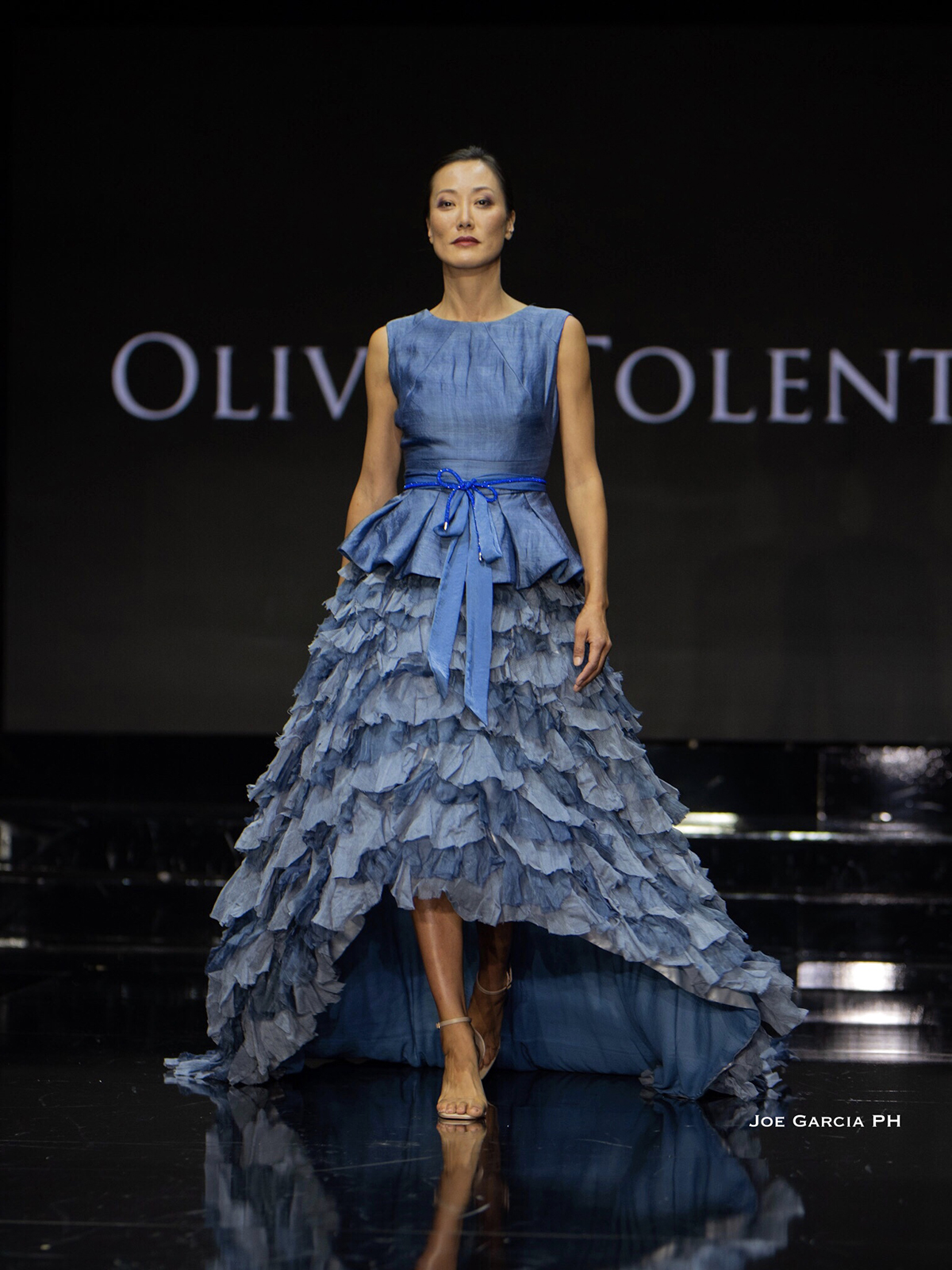
- Fashion
Oliver Tolentino – Creating Couture from Sustainable Fabric

Pina-seda: fabric made from a 300-year tradition that can be worn belted over a dress or skirt for haute couture or paired with jeans for ready-to-wear style. This blouse is created from material that is 100% sustainable. Soft and textured, the piece started out as pineapple leaves, which locals leave in the sun to dry and then convert the leaves to yarn which undergoes a process that weaves it into a fabric called pina. “It’s incredibly expensive,” he notes. “I went to the weavers in the Philippines to see how it was done and it takes an hour to weave a yard of fabric. I decided then I would never quibble over the price. Instead, an option is to mix pina with silk, making it pina-seda – a softer, easier to maintain fabric.

Designer Oliver Tolentino turned to a 300-year Philippine tradition of creating yarn out of pineapple leaves when creating his new collection shown at Kornit Fashion Week which had an emphasis on sustainable fashion and inclusive representation in models of every age, body shape, and gender. While the *$1.5 trillion fashion industry employs more than 300 million people worldwide, 60% of fast fashion is made of polyester, acrylic, and nylon and when washed, creates micro-fibers that end in the environment and are not biodegradable. Known as microplastics, invisible to the naked eye, they bond and embed, creating 35% of the primary plastic polluting our oceans*. For the boy who fell in love with fashion inspired by nature’s colors, the horror of inefficient manufacturing practices resulting in cutoffs being burned or ending up as a landfill prompted him to start collecting cutoffs and repurposing pieces from previous seasons. Oliver Tolentino guides me to an exquisite couture piece – a blouse of pina-seda.


“When I create something, I want a client who is going to become the mother of my design,” he notes. When I query the concept he states simply, “I want them to look after the garment. Value it. Use it over decades. I create designs that are ageless. If every woman could have one sustainable eco-friendly item in their closet, they’d feel a lot better about themselves.” Inspired by the fashion magazines like Vogue and Harper’s Bazaar that his mother purchased on the American Armed Forces base in the Philippines, Tolentino’s designs are perfect for the red carpet, creating avant-garde outlines made classic by Audrey Hepburn, Elisabeth Taylor, Grace Kelly and the other glam dames of the 50s and 60s. He updates the looks to make them current with throwback overtones that demand to be seen on the pages of Vogue – and Hollywood has come flocking.


“The biggest challenge any designer has is to do less,” he smiles caressing an innovative purple dress paired with an evening coat lined in a vibrant green. “We all want to create an extravagant dress that looks like art – but who can buy it and where can you wear it? Instead, I create stand-alone pieces or individual items that can be worn in creative ways. The colors reflect his heritage and make the garment a perfect balance of silhouette, fabric, and hue.” He lowers his voice conspiratorially.

“I have this huge box I keep cutoffs in. Some of the pieces are 18, 20 years old. It takes time to create something from those delicate pieces, but the outcome is luxe embellished fabric that is durable and rich in texture. The result is one-of-a-kind masterpieces of construction and tailoring.” Asked to describe his personal style he dimples: “Relatable, wearable fashion with Hollywood flare that also gives a nod to sustainable style.”

Thanks to: #KornitFashionWeekLA #KornitDigital

